Welcome to the second part of my countdown of 50 bookish memories from the 2010s. The first part went up last week, with the rest to follow each Sunday.
Compiling this list has made me realise just how idiosyncratic a personal reading history is. I read quite a lot of debuts, especially at the start of the decade, and didn’t begin reading works in translation seriously until about 2014. Both of those factors have helped shape my list. When I looked through some other ‘best of the decade’ lists, I was surprised at how few matches I saw with mine. But perhaps that’s how it was always going to be. Anyway, on to the next set of books…
40. T Singer by Dag Solstad, tr. Tiina Nunnally (2018)
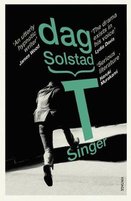
Here’s another author I first heard about on Steve Mitchelmore’s blog. As so often, it took me a few years to get around to reading him, but it was worth it. Solstad’s narrator becomes a librarian in a small town, seeking anonymity – but pushing the world away has its drawbacks. There’s a vertiginous quality to this novel that really affected me. The prose is discursive, skipping like a stone across water, but loneliness bubbles underneath.
39. Nod by Adrian Barnes (2012)
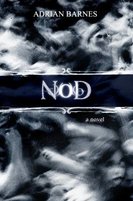
I’m not a great reader of post-apocalyptic fiction, but I do trust the publisher Bluemoose Books, which is how I ended up reading this. Mass insomnia leads to a strangely compressed, provisional and subjective dystopia. Nod is rougher-edged than many a book on my list, but it gains in intensity from its sheer restlessness. Its vision of words twisting perception has a raw power to me.
38. One of the Boys by Daniel Magariel (2017)
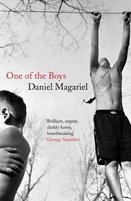
This is a little gem that I plucked from Granta Books‘ catalogue. A violent, possessive father gains custody of his sons, but cracks soon appear in this new family unit. When I read this book I could imagine a longer, more conventional version that wouldn’t be as good. The actual novel is told in extreme close-up: an unflinching look at toxic masculinity.
37. Mrs. Hemingway by Naomi Wood (2014)
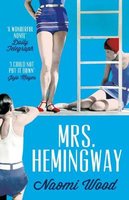
A novel about Ernest Hemingway’s wives wouldn’t appeal to me by itself. But I had enjoyed Naomi Wood’s debut, The Godless Boys, and the subject of Mrs. Hemingway was so different that I was intrigued. I like historical fiction that acknowledges the constructed nature of history. Wood does that by bringing out patterns in the structure, exploring the differences and similarities between each woman’s life and how they view their relationship with Hemingway.
36. Black Mamba Boy by Nadifa Mohamed (2010)
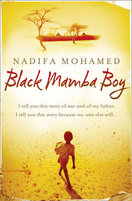
Speaking of ‘constructed’ history, here’s a novel that explores how history transmutes into story. Nadifa Mohamed tells of her father’s journey across Africa as a boy in search of his own missing father. Everything becomes a tale to tell: for example, characters displaced by the Second World War embellish stories of their homelands to help them survive. Reading this book was such a joy.
35. Come to the Edge by Joanna Kavenna (2012)
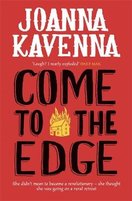
This is one of the funniest books on my list. When some long-standing residents of her rural community are due to be evicted, larger-than-life Cassandra White decides to rehouse them in the empty second homes of wealthy city folk. At a talk I attended, Joanna Kavenna said that she wrote Come to the Edge as though her characters didn’t have the usual inhibitions. You should see where it ends up – the narrative drive and energy just don’t stop.
34. Frankenstein in Baghdad by Ahmed Saadawi, tr. Jonathan Wright (2018)
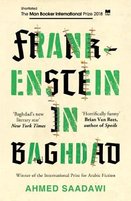
In US-occupied Baghdad, a “Whatsitsname” stitched together from body parts is willed to life and feels compelled to take revenge for the deaths of its constituents. I was sold on this book by the title, but it’s more than just a gimmick. There’s a really strong metaphor there for senseless, self-perpetuating killing – and just enough ambiguity to underline that the killing goes on anyway, without need for any sort of fantastical creature.
33. Martin John by Anakana Schofield (2015)
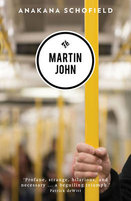
Not for the last time on my list, subject matter I’d shy away from is transformed by the writing into compelling fiction. This is an account of Martin John Gaffney, a flasher. It’s organised in a way that creates meaning for him, not the reader, reflecting the loops and rituals that help him hold life together. This was not a comfortable book to read, nor should it have been. But it challenged me to make space for it, and I had to meet that challenge.
32. How to Get Filthy Rich in Rising Asia by Mohsin Hamid (2013)
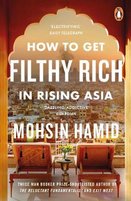
I’d been ambivalent towards The Reluctant Fundamentalist, but I remembered that narrative voice vividly. Now here was another vivid voice, telling the story of a poor boy who finds wealth, though not necessarily everything he wants. This is a whirlwind of a book that explores the different ways people may try to go up in the world.
31. All the Birds, Singing by Evie Wyld (2013)
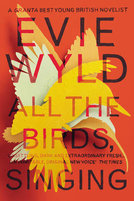
Here is one of two occasions where my list shares an author with Stuart Evers’ best of the 2000s. I remember this book for its elegant structure: two parallel narrative strands from one woman’s life, working on a sheep station in Australia then and looking after a flock on a British island now. The novel appealed to the part of me that appreciates patterning in fiction, but there are also compelling mysteries to be uncovered.
26th May 2020 at 7:08 pm
I’m really enjoying your list so far, though I can’t say I’ve read that many. Of these 10 I’ve read T Singer, Frankenstein in Baghdad and Martin John, all of which definitely deserve to be there.
30th May 2020 at 12:48 pm
Thanks Grant, that’s nice to hear. I’d recommend Come to the Edge, I think you might enjoy that.
29th May 2020 at 4:59 pm
I thought the Schofield and the Hamid both great. Hamid I think doesn’t get the credit as an experimental writer that he deserves.
The Wyld I also enjoyed a lot. Wasn’t surprised it got the attention it did.
Nod had a lot to love, though I thought the depiction of women in it wasn’t great. I’ve not seen anything else by Barnes which I think is a shame as it was such a singular book and he has clear talent. I read it back in 2012 and it’s interesting how much of it I can still remember pretty clearly.
30th May 2020 at 1:03 pm
I should read more Hamid. I don’t know why I haven’t got to Exit West yet, when I enjoyed his previous one so much.
There’s Schofield’s new book, Bina, to read as well. And Wyld’s, The Bass Rock. So much to catch up with.
I know what you mean about the depiction of women in Nod. Normally I wouldn’t give a book like that the time of day, but there was just so much else about it that was good.
You weren’t to know this, but sadly Adrian Barnes died a couple of years ago. I do wonder what else he might have gone on to write.
14th June 2020 at 3:13 am
I haven’t read it since 2000 or something but I really liked Moth Smoke, Hamid’s first novel. He was scheduled to visit my college this spring–here’s hoping he can make it next year.
20th June 2020 at 12:12 am
Hi Dorian, thanks for commenting. I must go back and read Moth Smoke as well. I met Hamid briefly at an event once and got my book signed. He was a good reader and seemed quite affable.